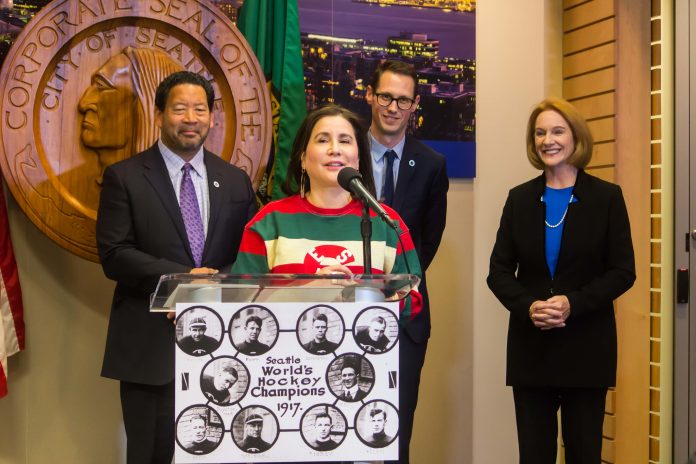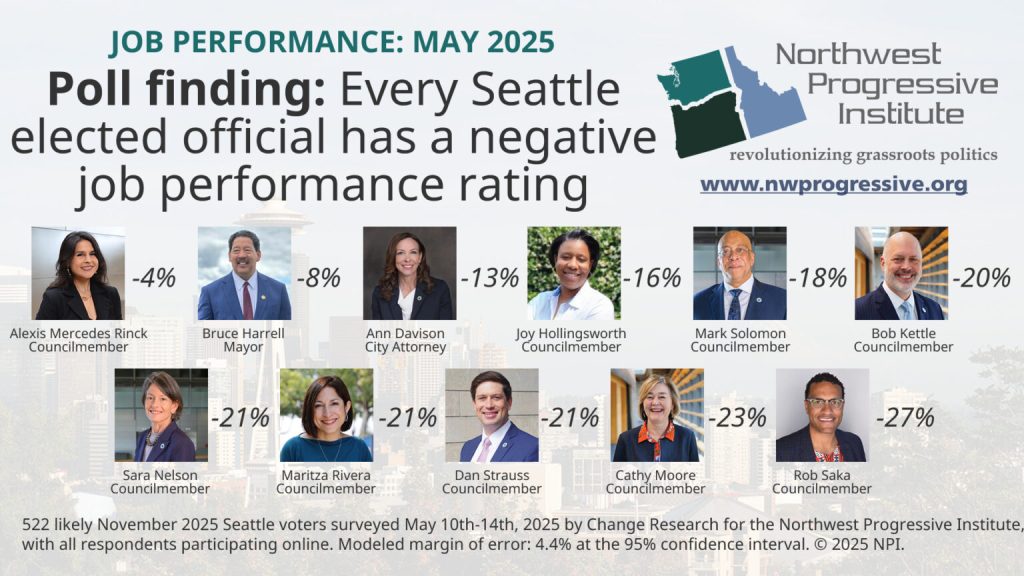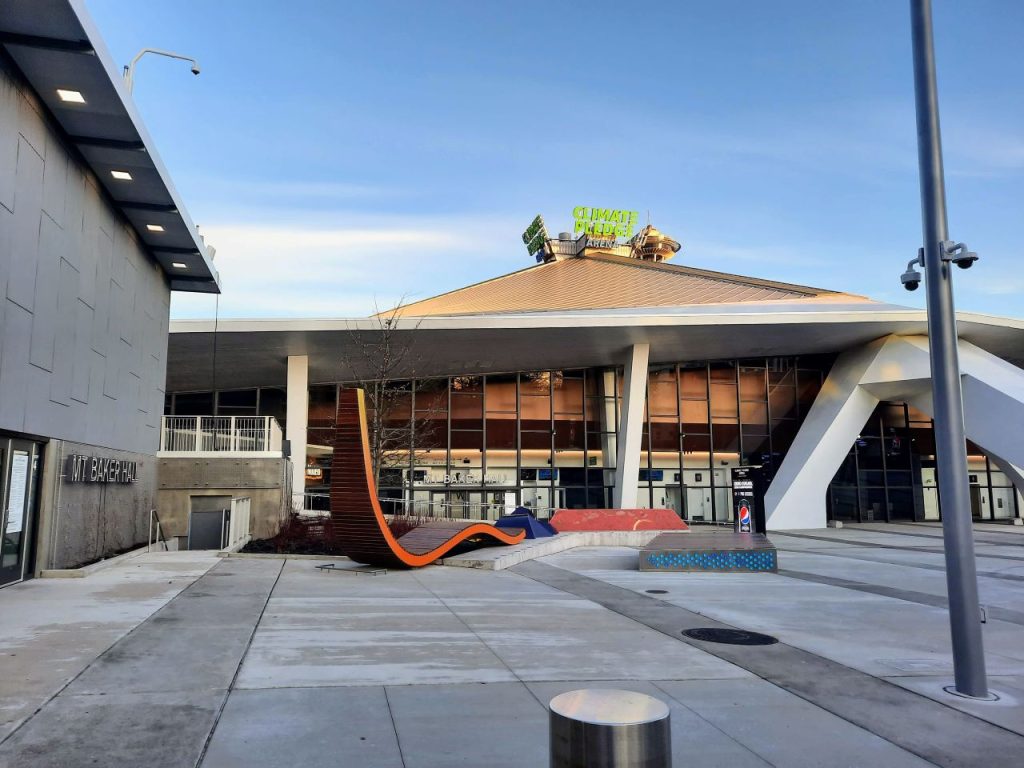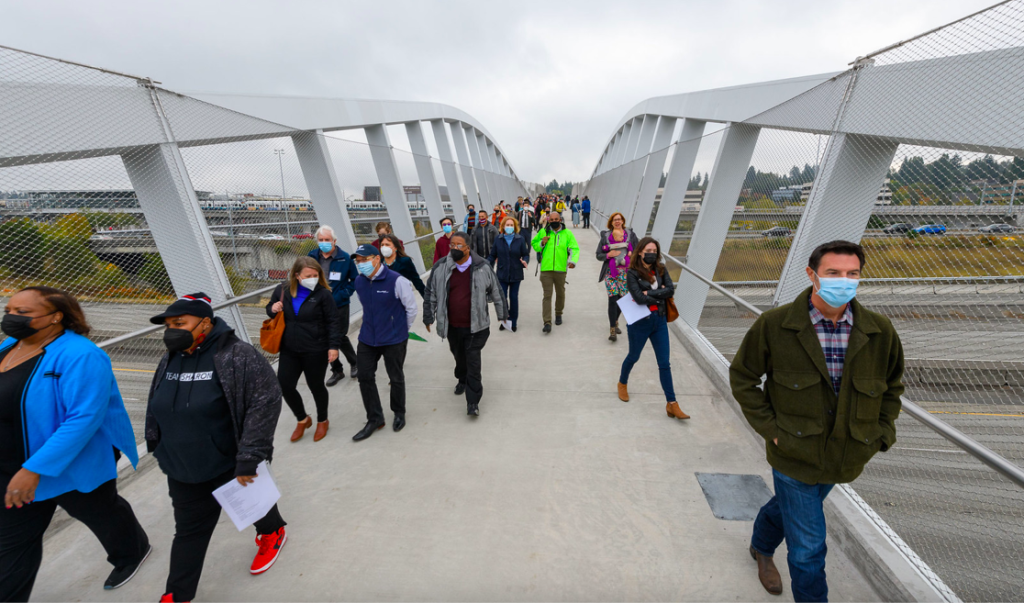
Debora Juarez served two full terms as a Seattle City Councilmember, representing District 5, which spans the northern hinterlands of Seattle. And she may well serve again as an appointee fill-in. It appears councilmembers hope the veteran lawmaker can bring some stability to an unsteady legislative body, which also saw the resignation of District 2 Councilmember Tammy Morales in January.
On Thursday, councilmembers whittled down a pool of 22 applicants to six finalists. Each councilmember had the chance to nominate one candidate as a finalist, though two declined to do so. Councilmember Bob Kettle was the one to nominate Juarez.
A final vote on the appointment is expected July 28 — the final day to make a decision — following two public forums with the finalists. The first forum will be at North Seattle College on July 21 and the second will be July 22 during a special council meeting at city hall.
Theoretically, one of the five other finalists could make a charge to win over enough councilmembers, but most city hall insiders have indicated Juarez is the clear frontrunner. In her application, Juarez pitched herself as an elder and a council veteran who could hit the ground running. She needs to secure just five votes to secure the appointment.
“It’s simple: I was called to serve,” Juarez wrote. “I would be honored to bring my ‘Elder Auntie’ experience, wisdom gained with no regrets, and vision to this important role once again, this time as a caretaker of the seat until a new councilmember can be elected.”
If appointed, Juarez’s eight years of experience would make her the longest-tenured member on council — albeit not consecutively. She also served as council president in 2022 and 2023. That experience may come into play if Council President Sara Nelson does not survive her reelection bid this fall.
Nilu Jenks is the other finalist to have previously run for office; she ran for D5 Council seat in 2023 but came in third in the primary — she had The Urbanist’s endorsement in that primary. Jenks is the political director for FairVote Washington. Councilmember Alexis Mercedes Rinck (who is in the vanguard of Council’s progressive minority) nominated Jenks as a finalist.
A wayward council?
Former Councilmember Cathy Moore called it quits, officially stepping down on July 7, which set in motion the appointment process. While Morales had cited bullying and gaslighting as inspiring her departure, Moore’s stated reasons were of a more boilerplate variety: “health and personal reasons.”
It was a fast turn of political fortune for Moore, who won by the largest margin of any Seattle candidate in 2023, grabbing 64% of the vote against disability rights advocate and equity consultant ChrisTiana ObeySumner. A former judge, Moore seemed ill-suited to the job and the criticism it brought. Without a judge’s gavel, she could not silence dissent or quell a line of debate, and the job appeared to wear on her.
Recent public polling commissioned by the Northwest Progressive Institute (NPI) has shown declining approval ratings for Seattle councilmembers. Moore’s -23% job performance rating was the second worse in the poll — only Rob Saka’s -27% mark was worse.

NPI executive director Andrew Villeneuve posited that Council’s lack of big policy wins and focus on rolling back laws and programs passed by previous Councils could be driving their tanking poll numbers.
“Voters’ dissatisfaction with the performance of Davison and Nelson and the Council may have less to do with what they’ve done and more to do with what they haven’t done,” Villeneuve wrote. “This Council has wasted a lot of time and energy pondering whether to roll back the work of previous Councils rather than tackling the problems that Seattle faces, as I’ve previously discussed.”
Moore still had more than two years before she had to face reelection, but early signs were that it would have been a tough fight.
By waiting to resign until after the filing deadline for the 2025 election, Moore ensured her appointed replacement would serve 16 months before the next general election determines an elected replacement. The winner of the special D5 election 2026 will serve well over one year before having to face another election to earn a full term.
In contrast, by resigning in January, Morales ensured that the D2 seat is on the ballot this fall and a robust race has emerged for the open seat. Council appointed Mark Solomon, who ran against Morales in 2019 but lost, to fill the vacancy until election results are certified in November.
The six finalists
The six finalists are:
- James M. Bourey – Bourey is the executive director of the Seattle Architecture Foundation. He previously served as city manager for two mid-sized, Mid-Atlantic cities. Council President Sara Nelson nominated Bourey as a finalist.
- Katy Haima – Haima is a community planning manager for the City of Seattle. Councilmember Mark Solomon advanced Haima as a finalist.
- Nilu Jenks – Jenks previously ran for this seat in 2023 and came in third in the primary — she had The Urbanist’s endorsement. Jenks is the political and partnerships director for FairVote Washington. Rinck nominated Jenks as a finalist.
- Debora Juarez – Juarez is a member of the Blackfeet Nation and was the first Indigenous person to serve on the Council when she was first elected in 2015. She opted not to run for reelection in 2023. Kettle advanced Juarez as a finalist.
- Julie Kang – Kang is the director of professional and continuing education at Seattle University. Kang also serves on the Seattle City Club Board and the Korean American Coalition of Washington Board, among others. Councilmember Maritza Rivera advanced Kang as a finalist.
- Robert D. Wilson – Wilson is a senior product manager at Amazon and served in the Navy before that. Councilmember Rob Saka advanced Wilson as a finalist.
By referring to herself as a “caretaker,” Juarez is signaling she does not intend to run to keep the office in 2026. However, such pledges are not binding.
Nelson indicated a preference for a candidate who would run and seek to hold the seat. That she would be well-positioned to run for the office was one of the arguments Nelson-led Council made when they appointed Tanya Woo to fill a vacancy in 2024. However, the plan didn’t work out when Woo lost her election bid to Rinck that November.
By the time Juarez departed Council in 2023, she appeared fairly frustrated with the job, and, like Moore, bristled at dissent from critics or protesters in council chambers. In 2020, a group protesting police brutality held a rally outside Juarez’s home, which her allies rebuked as an “intimidation” effort. As a more centrist-leaning member, she regularly found herself on the minority on votes, particularly in her second term once progressives had swung control of the board.
With centrists now in power, Juarez may find an easier time of it this time around. But representing a city of 816,600 people is a tough job no matter who you slice it.
Juarez’s accomplishments
Juarez’s application highlighted a long record of accomplishments, which centered around expanding civic infrastructure.
“Throughout my time as Councilmember and Council President, I championed efforts to improve our City’s infrastructure, foster economic mobility, and increase our stock of affordable housing,” Juarez wrote. “From chairing the committee to build the new Climate Pledge Arena, to bringing the incoming 130th Street/Pinehurst Station years ahead of schedule to funding and opening the John Lewis Memorial Bridge, my approach has always been centered on equity, economic mobility, collaboration, and transparency.”
With her passion for “brick and mortar,” Juarez was eager to note her backing for the Seattle Center arena overhaul that become Climate Pledge Arena, once the naming rights were inked. Juarez faced vitriolic attacks for her vote against an alley vacation in SoDo which was an obstacle to hedge fund manager Chris Hansen’s arena bid. But focusing attention on the city-owned site appears wise in retrospect. Fans don’t appear to complaining now that they have a renovated arena where they can enjoy hockey, basketball, or musical performances.
Additionally, Juarez chaired the committee that oversaw that work and “helped bring the Kraken Community Iceplex to District 5 to generate economic development and create jobs.”

In another sports-related accomplishment, Juarez pointed to the help she offered to clear the way for Seattle Storm WNBA practice facility in Interbay, which involved a spot rezone. Her application noted this was “first practice facility dedicated to a women’s professional sports
team in the United States.”
Juarez served on the Sound Transit Board of Directors and led the charge to advance the timeline to open 130th Street/Pinehurst Station. Sound Transit had initially planned to open that station in 2031, but the Seattle delegation pushed to move up closer to the rest of the Lynnwood Link Extension. As a result, the in-fill station will open in 2026.
To better connect Northgate Station to North Seattle College and other points to the west, Juarez helped secure funding for the John Lewis Memorial Bridge, which opened in 2021. The pedestrian bridge helps span the chasm that I-5 creates in the area.

On housing, Juarez proudly presented herself as a pro-growth voice, noting she “strongly supported land use changes to enable every neighborhood to welcome all types of housing to serve all income levels.” Juarez supported the Mandatory Housing Affordability upzones across the city’s urban centers in 2019.
One area where Juarez was more hesitant, however, is taxing wealthy corporations. In 2020, Juarez was one of only two councilmembers to vote against the Jumpstart corporate payroll expensive tax. The city leaned heavily on that tax source to avoid deep cuts amidst the pandemic and Council’s long-term spending plan also envisioned investing about two-thirds of revenue on housing — however, Mayor Bruce Harrell has had other ideas.
With Seattle still facing looming budget shortfalls, the issues of business taxes is coming back around, with Harrell and Rinck proposing a progressive reform of the business and occupation (B&O) tax that is expected to generate an additional $90 million per year. While 90% of small businesses would pay less under the proposal, B&O tax rates would go up by roughly 50% for the remaining larger businesses. Juarez could end up becoming an important swing vote on that tax, and her history suggests she would be hesitant.
Doug Trumm is publisher of The Urbanist. An Urbanist writer since 2015, he dreams of pedestrian streets, bus lanes, and a mass-timber building spree to end our housing crisis. He graduated from the Evans School of Public Policy and Governance at the University of Washington in 2019. He lives in Seattle's Fremont neighborhood and loves to explore the city by foot and by bike.


